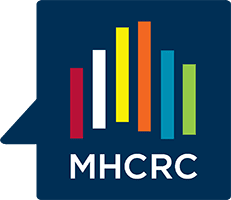TechSmart Initiative for Student Success
The Mt. Hood Cable Regulatory Commission (MHCRC) officially wrapped up the TechSmart Initiative for Student Success in school year 2022/2023 after investing nearly $16 million over eight years to school districts in Multnomah County including: Centennial, David Douglas, Gresham Barlow, Parkrose, Portland Public, and Reynolds School Districts. Launched in 2014, the TechSmart Initiative provided grants and evaluation resources designed to help districts identify effective classroom instruction using technology in order to foster improvement in academic outcomes for all students, and to share the successful strategies across the school districts. The TechSmart Initiative aligned with the collective effort of the broader community engaged in the Oregon All Hands Raised Partnership, to make progress on the following academic outcomes key to student success:
- Kindergarten Readiness
- English Language Learners’ Annual Progress
- Third Grade Reading
- Eighth Grade Math
- Ninth Grade Credit Attainment
- High School Graduation
Each year, the grantees participated in a quasi-experimental student achievement study in order to understand the progress made towards closing the achievement gap. The studies tracked TechSmart cohorts annually and compared their progress to non-TechSmart students and classrooms. Data on the overall impact of the Initiative was gathered, analyzed and presented by the MHCRC’s research partner, Pacific Research & Evaluation (PRE). You can download the evaluation reports by school year below. Prior to the pandemic, several promising student achievement findings emerged, which are detailed in the final impact report along with an overview of the initiative itself and successes to replicate.
Read the Final Initiative Impact Report.
“The MHCRC was thrilled to be working alongside so many others who understood that success of our youth is key to the success of our communities,” said Carol Studenmund, MHCRC Commisioner. “Through the TechSmart Initiative, the District’s gained critical resources to discover how to best use technology in teaching and learning to improve outcomes for all students.”
TechSmart Schools & Grantee Transition to Distance Learning
In review of year-end surveys, submitted status reports and participant interviews, the MHCRC’s evaluation partner, Pacific Research & Evaluation (PRE), was able to gather tremendous qualitative data which indicated that the classrooms and schools which were involved in the TechSmart Initiative prior to the district’s switch to distance learning had a smoother transition and more positive outcomes overall. Teachers reported feeling more prepared for the transition to distance learning, able to not only move content online but facilitate group work and design collaborative class discussions. District leadership observed that TechSmart teachers were quick to provide support to non-TechSmart teachers. In addition, teachers and district leadership reported that TechSmart students were more equipped to move into a virtual learning environment as they knew how to log on and were familiar with the devices and software from in-classroom use.
Read the full “TechSmart Impact Report: Grantee Transition to Distance Learning due to COVID-19 Pandemic”
Impact Evaluation
The MHCRC has contracted with Pacific Research and Evaluation to design and implement a TechSmart Initiative evaluation plan to help school districts identify and understand effective instructional strategies and practices that use technology to foster improvement in academic outcomes for all students. After multiple years of project implementation by school districts in Multnomah County, the evaluation has begun to identify promising instructional practices that can be shared across all districts. TechSmart Initiative Evaluation Reports are linked below.
- School Year 2020-21 Evaluation Report
- School Year 2019-20 Summary Report
- School Year 2019-20 Evaluation Report
- School Year 2018-19 Evaluation Report
- School Year 2017-18 Summary Report
- School Year 2017-18 Evaluation Report
- School Year 2016-17 Summary Report
- School Year 2016-17 Evaluation Report
- School Year 2015-16 Evaluation Report
Funds for the TechSmart Initiative derive from the cable services franchises negotiated by the MHCRC with Comcast, Ziply, formerly Frontier, and Reliance Connects. The cable companies pay three percent of their gross revenues for video services in Multnomah County to support community uses of cable system technology, including funding for the MHCRC’s Community Grants program. Cable companies enter into franchise agreements in order to use the public right of way for their business purposes.
